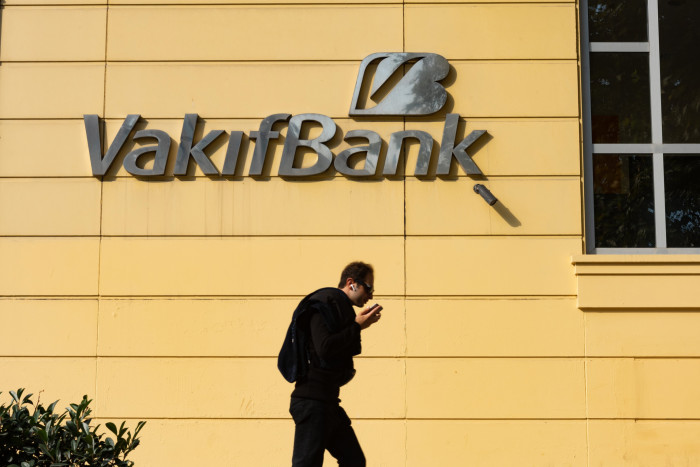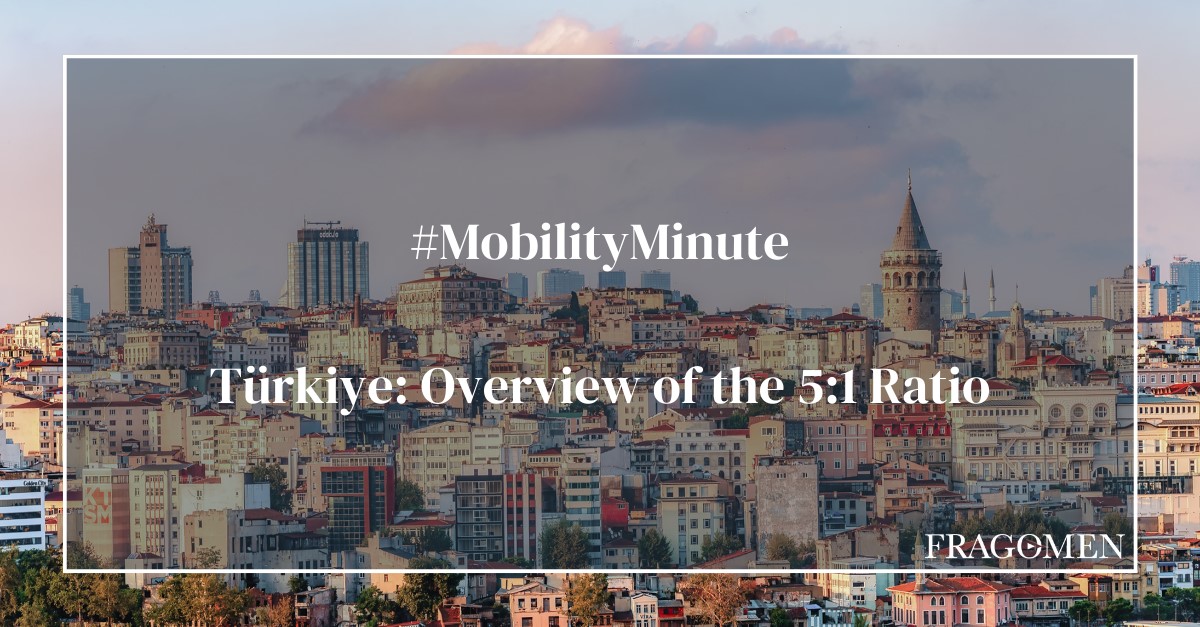US and EU step up pressure on Turkey over Russia sanctions
The US and EU are stepping up pressure on Turkey to crack down on Russian sanctions evasion amid concerns that the country’s banking sector is a potential backdoor for illicit finance.
The US is focusing on Turkish banks that have integrated into Mir, Russia’s domestic payments system, two western officials involved in the plans told the Financial Times, as Brussels prepares a delegation to express its concerns to Turkish officials directly.
The pressure on Turkey comes as western capitals pivot towards tighter implementation of existing sanctions rather than the imposition of new measures. The shift acknowledges that economic sanctions imposed after Vladimir Putin’s invasion of Ukraine in February failed to damage Russia’s economy as much as they had hoped. But they maintain closing off loopholes in the current measures will slowly squeeze the Kremlin’s financial lifelines.
“You’re going to see us kind of focus on financial sector evasion,” said the first western official. “We’ll send a message very clearly that, for example, third-country financial institutions should not be interconnecting with the Mir payment network because, you know, that carries some sanctions-evasion risks.”
“We need to close loopholes,” said a second official involved in this month’s talks between the EU and US on sanctions enforcement, citing Turkey as the major target.

In guidance issued on Thursday, the US Treasury department warned that non-US financial institutions risk “supporting Russia’s efforts to evade US sanctions through the expanded use of the Mir National Payment System outside the territory of the Russian Federation”.
It added that the US’s Office of Foreign Assets Control was prepared to use its “targeting authorities” — such as imposing blocking sanctions — in response to supporters of Russia’s sanctions evasion, including in relation to Mir.
Turkey’s president Recep Tayyip Erdoğan, whose country has been a Nato member since 1952, has pursued what he calls a “balanced” approach to the Ukraine conflict. His refusal to sign up to sanctions against Russia and a recent pledge to deepen economic co-operation with Moscow have alarmed his western allies. Erdoğan, who will meet Putin on Friday, said last month that there is “serious progress” on expanding Mir in Turkey.
Five of Turkey’s largest banks, VakıfBank, Ziraat Bank, İş Bank, DenizBank and Halkbank, are members of the Mir payment system, which was developed by Russia’s central bank as a domestic alternative to Visa and Mastercard.
Two of those — UAE-owned private lender DenizBank and state-controlled Halkbank, notorious for its alleged role in a scheme to evade US sanctions on Iran that dates back to 2010 — signed up to Mir after Putin launched his full-scale invasion in February.
İşbank said that its policy required “strict compliance with all applicable US sanctions”, adding: “We closely monitor sanctions and take the necessary measures to carry out Mir card transactions in compliance with this policy.”
DenizBank said: “We don’t execute transactions with sanctioned banks. We fully comply with international sanctions on Russia.” Halkbank, VakıfBank and Ziraat Bank did not respond to requests for comment.
Turkey’s foreign ministry said that while Ankara had a longstanding policy of only implementing UN-backed sanctions, “we have also been equally firm in our policy of not allowing Türkiye to become a channel to evade sanctions”.
As part of efforts to strengthen enforcement, Mairead McGuinness, the EU’s financial services commissioner, is aiming to visit Turkey next month, according to people familiar with the plans. A senior EU official said: “Commissioner McGuinness has recently visited a number of countries to discuss issues related to financial services, and the implementation of sanctions in particular, given Russia’s aggression against Ukraine.”
Wally Adeyemo, deputy US treasury secretary, wrote to Turkish businesses last month warning them of “Russia’s attempts to use your country to evade sanctions” and the risks of “conducting transactions with sanctioned Russian-based entities”.
Rolled out in waves of measures in the initial weeks after Russia’s invasion, western sanctions have sought to cut off Russia’s biggest banks, energy and defence companies and hundreds of senior officials and richest businessmen from the global market.
As part of the broader crackdown on sanctions evasion, western efforts will target individuals handling payments on behalf of Russians as well as businesses that have helped set up parallel payment networks for Moscow, according to one of the officials.
The EU and US will also target entities assisting Moscow with processing Russian export revenues or facilitating imports of industrial or defence products banned under western sanctions, the three officials said.
Other measures under discussion include targeting more individuals involved in Russia’s software, ecommerce and cyber security industries, two officials said.
In addition to Turkey, the crackdown on potential back doors for sanctions evasion is targeting countries in the Caucasus, central Asia and the Gulf, officials said. “Russia will try every door. And every country needs to be mindful that we will track that and talk to them,” said James O’Brien, sanctions co-ordinator at the US state department.



